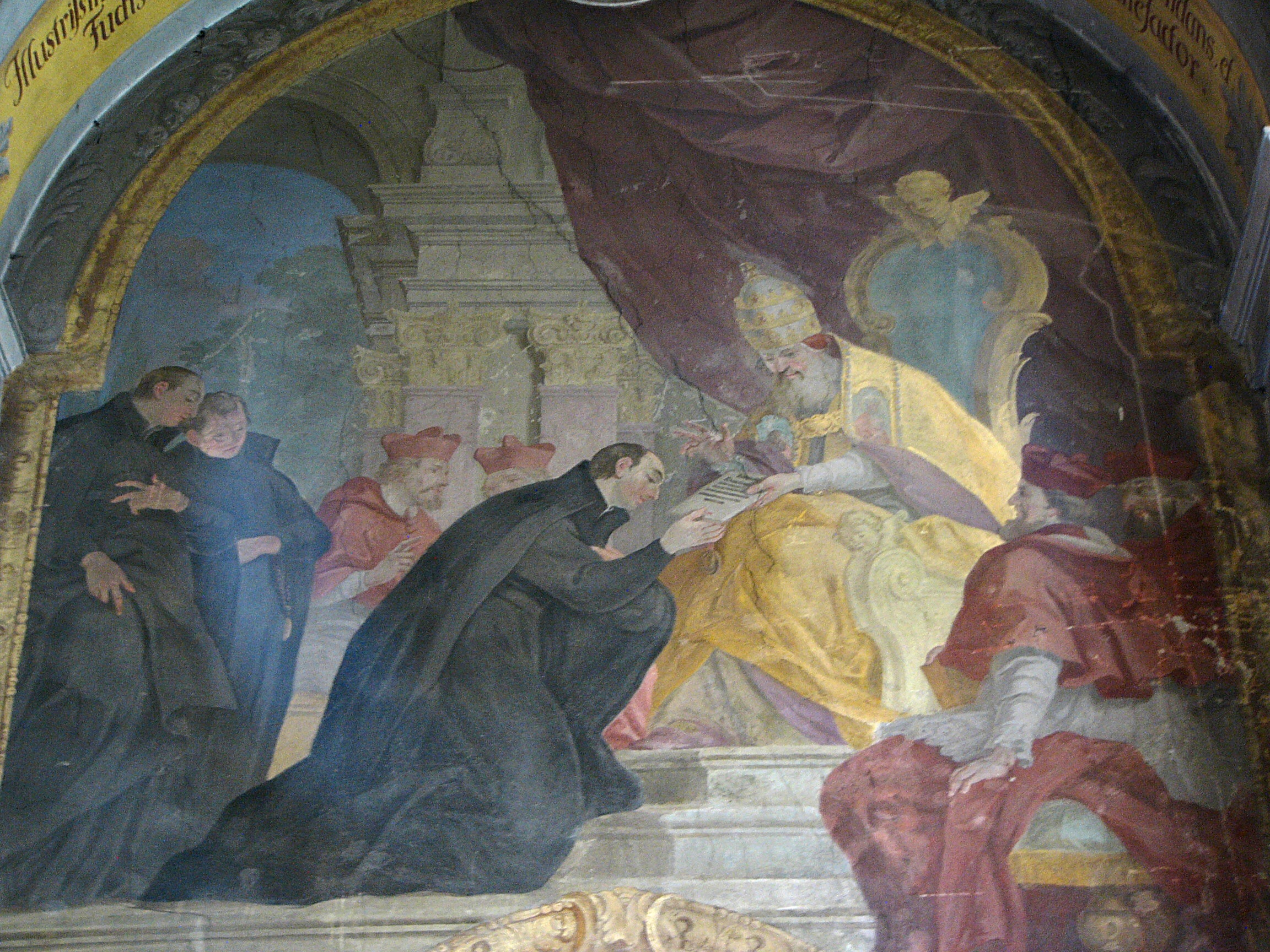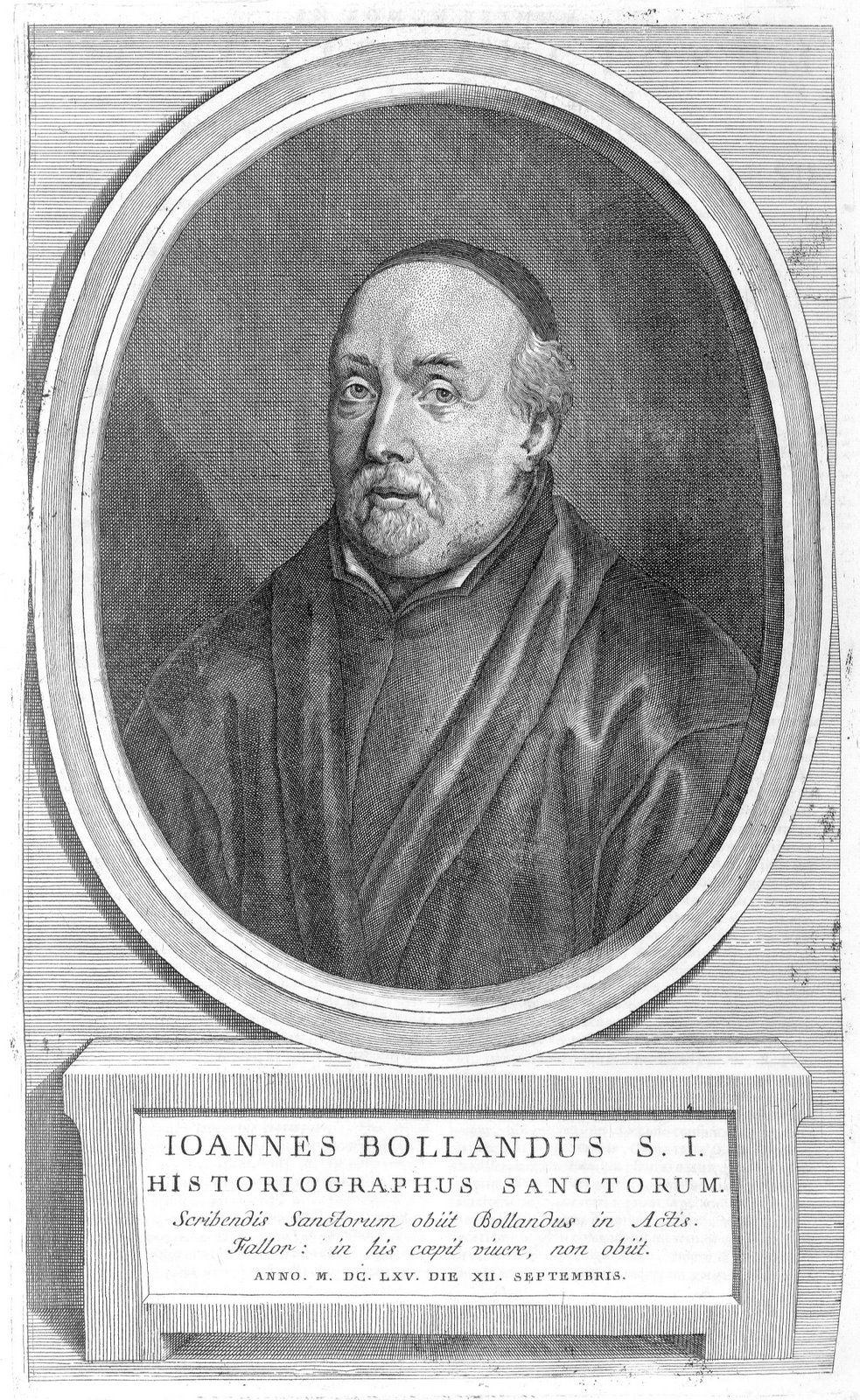|
Bibliotheca Hagiographica Latina
The ''Bibliotheca Hagiographica Latina'' (') is a catalogue of Latin hagiographic materials, including ancient literary works on the saints' lives, the translations of their relics, and their miracles, arranged alphabetically by saint. The listings include manuscripts, incipits, and printed editions. The first edition (1898-1901) and supplement (1911) were edited by the Bollandists, which included the Jesuit scholar Hippolyte Delehaye. The most recent supplement is the product of a single editor, the Polish Jesuit , also Bollandist. The ''Bibliotheca Hagiographica Graeca'' and '' Bibliotheca Hagiographica Orientalis'' catalogue hagiography, respectively, written in Greek and Middle Eastern languages. Editions * (AJ) * (KZ) * * (Includes the contents of the 1911 supplement.) * See also *''Bibliotheca Hagiographica Graeca The ''Bibliotheca Hagiographica Graeca'' is a catalogue of Greek hagiographic materials, including ancient literary works on the saints' lives, ... [...More Info...] [...Related Items...] OR: [Wikipedia] [Google] [Baidu] |
Latin
Latin (, or , ) is a classical language belonging to the Italic branch of the Indo-European languages. Latin was originally a dialect spoken in the lower Tiber area (then known as Latium) around present-day Rome, but through the power of the Roman Republic it became the dominant language in the Italian region and subsequently throughout the Roman Empire. Even after the fall of Western Rome, Latin remained the common language of international communication, science, scholarship and academia in Europe until well into the 18th century, when other regional vernaculars (including its own descendants, the Romance languages) supplanted it in common academic and political usage, and it eventually became a dead language in the modern linguistic definition. Latin is a highly inflected language, with three distinct genders (masculine, feminine, and neuter), six or seven noun cases (nominative, accusative, genitive, dative, ablative, and vocative), five declensions, four verb conjuga ... [...More Info...] [...Related Items...] OR: [Wikipedia] [Google] [Baidu] |
Society Of Jesus
, image = Ihs-logo.svg , image_size = 175px , caption = ChristogramOfficial seal of the Jesuits , abbreviation = SJ , nickname = Jesuits , formation = , founders = , founding_location = , type = Order of clerics regular of pontifical right (for men) , headquarters = Generalate:Borgo S. Spirito 4, 00195 Roma-Prati, Italy , coords = , region_served = Worldwide , num_members = 14,839 members (includes 10,721 priests) as of 2020 , leader_title = Motto , leader_name = la, Ad Majorem Dei GloriamEnglish: ''For the Greater Glory of God'' , leader_title2 = Superior General , leader_name2 = Fr. Arturo Sosa, SJ , leader_title3 = Patron saints , leader_name3 = , leader_title4 = Ministry , leader_name4 = Missionary, educational, literary works , main_organ = La Civiltà Cattoli ... [...More Info...] [...Related Items...] OR: [Wikipedia] [Google] [Baidu] |
Belgian Books
Belgian may refer to: * Something of, or related to, Belgium * Belgians, people from Belgium or of Belgian descent * Languages of Belgium, languages spoken in Belgium, such as Dutch, French, and German * Ancient Belgian language, an extinct language formerly spoken in Gallia Belgica * Belgian Dutch or Flemish, a variant of Dutch *Belgian French, a variant of French * Belgian horse (other), various breeds of horse * Belgian waffle, in culinary contexts * SS ''Belgian'', a cargo ship in service with F Leyland & Co Ltd from 1919 to 1934 *''The Belgian ''The Belgian'' is a 1917 American silent film directed by Sidney Olcott and produced by Sidney Olcott Players with Valentine Grant and Walker Whiteside in the leading roles. It is not known whether the film currently survives. Plot As descr ...'', a 1917 American silent film See also * * Belgica (other) * Belgic (other) {{Disambiguation ... [...More Info...] [...Related Items...] OR: [Wikipedia] [Google] [Baidu] |
Catalogues
Catalog or catalogue may refer to: *Cataloging **'emmy on the 'og **in science and technology ***Library catalog, a catalog of books and other media ****Union catalog, a combined library catalog describing the collections of a number of libraries *** Calendar (archive) and Finding aid, catalogs of an archive ***Astronomical catalog, a catalog of astronomical objects ****Star catalog, a catalog of stars ***Pharmacopoeia, a book containing directions for the preparation of compound medicines ***Database catalog, in computer science **in arts ***Collection catalog, a catalog of a museum ***Exhibition catalogue, a catalogue of art ***''Catalogue raisonné'', a list of artworks ***Music catalog, a catalog of musical compositions ***Font catalog, a catalog of typefaces containing specimen with example use of fonts **in sales ***Mail order catalog ***Parts book, a book published by a manufacturer, containing the part numbers of their products ***Trade literature, printed materials publis ... [...More Info...] [...Related Items...] OR: [Wikipedia] [Google] [Baidu] |
Jesuit Publications
, image = Ihs-logo.svg , image_size = 175px , caption = ChristogramOfficial seal of the Jesuits , abbreviation = SJ , nickname = Jesuits , formation = , founders = , founding_location = , type = Order of clerics regular of pontifical right (for men) , headquarters = Generalate:Borgo S. Spirito 4, 00195 Roma-Prati, Italy , coords = , region_served = Worldwide , num_members = 14,839 members (includes 10,721 priests) as of 2020 , leader_title = Motto , leader_name = la, Ad Majorem Dei GloriamEnglish: ''For the Greater Glory of God'' , leader_title2 = Superior General , leader_name2 = Fr. Arturo Sosa, SJ , leader_title3 = Patron saints , leader_name3 = , leader_title4 = Ministry , leader_name4 = Missionary, educational, literary works , main_organ = La Civiltà Cattolica , ... [...More Info...] [...Related Items...] OR: [Wikipedia] [Google] [Baidu] |
Christian Hagiography
A hagiography (; ) is a biography of a saint or an ecclesiastical leader, as well as, by extension, an adulatory and idealized biography of a founder, saint, monk, nun or icon in any of the world's religions. Early Christian hagiographies might consist of a biography or ', a description of the saint's deeds or miracles (from Latin ''vita'', life, which begins the title of most medieval biographies), an account of the saint's martyrdom (called a ), or be a combination of these. Christian hagiographies focus on the lives, and notably the miracles, ascribed to men and women canonized by the Roman Catholic church, the Eastern Orthodox Church, the Oriental Orthodox churches, and the Church of the East. Other religious traditions such as Buddhism, Hinduism, Taoism, Islam, Sikhism and Jainism also create and maintain hagiographical texts (such as the Sikh Janamsakhis) concerning saints, gurus and other individuals believed to be imbued with sacred power. Hagiographic works, especiall ... [...More Info...] [...Related Items...] OR: [Wikipedia] [Google] [Baidu] |
Bibliotheca Hagiographica Orientalis
The ''Bibliotheca Hagiographica Orientalis'' is a catalogue of Arabic, Coptic, Syriac, Armenian, and Ethiopian hagiographic materials, including ancient literary works on the saints' lives, the translations of their relics, and their miracles, arranged alphabetically by saint. It is usually abbreviated as ''BHO'' in scholarly literature. The listings include MSS, incipits, and printed editions. The ''BHO'' along with the ''Bibliotheca Hagiographica Graeca'' and ''Bibliotheca Hagiographica Latina'' are the most useful tools in the research of literary documents concerning the saints.Sergei Hackel, ed.''The Byzantine Saint (San Bernardino: Borgo Press, 1983), 161'' Editions ''Bibliotheca hagiographica orientalis,''ed. Paul Peeters, Subsidia Hagiographica 10 (Bruxelles: Société des Bollandistes, 1910 eprinted 1954, 1970. See also *''Bibliotheca Hagiographica Graeca'' *''Bibliotheca Hagiographica Latina The ''Bibliotheca Hagiographica Latina'' (') is a catalogue of Latin ha ... [...More Info...] [...Related Items...] OR: [Wikipedia] [Google] [Baidu] |
Bibliotheca Hagiographica Graeca
The ''Bibliotheca Hagiographica Graeca'' is a catalogue of Greek hagiographic materials, including ancient literary works on the saints' lives, the translations of their relics, and their miracles, arranged alphabetically by saint. It is usually abbreviated as BHG in scholarly literature. The listings include MSS, incipits, and printed editions. The first two editions (1895, 1909) were edited by the Bollandists, which included the Jesuit scholar Hippolyte Delehaye. The most recent editions have been the product of a single editor François Halkin. The ''BHG'' along with the ''Bibliotheca Hagiographica Latina'' and '' Bibliotheca Hagiographica Orientalis'' are the most useful tools in the research of literary documents concerning the saints.Sergei Hackel, ed.''The Byzantine Saint (San Bernardino: Borgo Press, 1983), 161'' Editions * ''Bibliotheca hagiographica graeca; seu, Elenchus vitarum sanctorum,'' ed. Société des Bollandistes (Bruxelles: Apud editories, 1895). ''Bib ... [...More Info...] [...Related Items...] OR: [Wikipedia] [Google] [Baidu] |
Hippolyte Delehaye
Hippolyte Delehaye, S.J., (19 August 1859 – 1 April 1941) was a Belgian Jesuit who was a hagiographical scholar and an outstanding member of the Society of Bollandists. Biography Born in 1859 in Antwerp, Delehaye joined the Society of Jesus in 1876, being received into the novitiate the following year. After making his initial profession of religious vows in 1879, he was sent to study philosophy at the University of Louvain from 1879 to 1882. He was then assigned until 1886 to teach mathematics at the Collège Sainte-Barbe in Ghent (named for the school in Paris, '' alma mater'' of Ignatius of Loyola). Delehaye was ordained in 1890. In 1892 Fr Delehaye was appointed by his Jesuit superiors to be a fellow of the Society of Bollandists, named for the 17th-century hagiographical scholar Jean Bolland, S.J.,and founded the early seventeenth century specifically to study hagiography, research towards the gathering and evaluation of historical documentary sources regarding the li ... [...More Info...] [...Related Items...] OR: [Wikipedia] [Google] [Baidu] |
Hagiographic
A hagiography (; ) is a biography of a saint or an ecclesiastical leader, as well as, by extension, an adulatory and idealized biography of a founder, saint, monk, nun or icon in any of the world's religions. Early Christian hagiographies might consist of a biography or ', a description of the saint's deeds or miracles (from Latin ''vita'', life, which begins the title of most medieval biographies), an account of the saint's martyrdom (called a ), or be a combination of these. Christian hagiographies focus on the lives, and notably the miracles, ascribed to men and women canonized by the Roman Catholic church, the Eastern Orthodox Church, the Oriental Orthodox churches, and the Church of the East. Other religious traditions such as Buddhism, Hinduism, Taoism, Islam, Sikhism and Jainism also create and maintain hagiographical texts (such as the Sikh Janamsakhis) concerning saints, gurus and other individuals believed to be imbued with sacred power. Hagiographic works, especiall ... [...More Info...] [...Related Items...] OR: [Wikipedia] [Google] [Baidu] |
Bollandists
The Bollandist Society ( la, Societas Bollandistarum french: Société des Bollandistes) are an association of scholars, philologists, and historians (originally all Jesuits, but now including non-Jesuits) who since the early seventeenth century have studied hagiography and the cult of the saints in Christianity. Their most important publication has been the ''Acta Sanctorum'' (The Lives of the Saints). They are named after the Flemish Jesuit Jean Bollandus (1596–1665). ''Acta Sanctorum'' The idea of the ''Acta Sanctorum'' was first conceived by the Dutch Jesuit Heribert Rosweyde (1569–1629), who was a lecturer at the Jesuit college of Douai. Rosweyde used his leisure time to collect information about the lives of the saints. His principal work, the 1615 ''Vitae Patrum'', became the foundation of the ''Acta Sanctorum''. Rosweyde contracted a contagious disease while ministering to a dying man, and died himself on October 5, 1629, at the age of sixty. Father Jean Bollandus wa ... [...More Info...] [...Related Items...] OR: [Wikipedia] [Google] [Baidu] |





